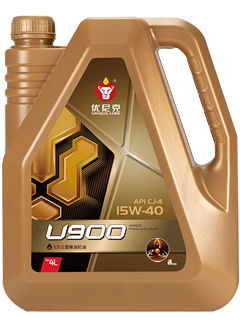Failure reason and discriminant method of lubricating oil
1. Reasons for lubricating oil failure
(1) Influence of high temperature
(1) Lubricating oil in high temperature environment for a long time, will oxidation failure, appear black, thick phenomenon.
(2) The internal corrosion of lubricating oil increases, such as acid substances formed in engine work.
③ Increase of carbon deposition, sludge, paint film and other substances.
(2) the impurities
Mainly from the dust in the air, metal abrasive particles, leakage (fuel oil, water, etc.), lubricating oil oxides and fuel combustion of the material.
(3) Additive failure
Some lubricants degrade because additives in them fail or run out. For example, when the antiwear agent in lubricating oil is used up, the antiwear property will decrease.
(4) Failure of viscosity index enhancer
Because of the long chain fracture of organic molecules, it no longer has the effect of viscosifying.
(5) Base oil failure
The base oil is the carrier of the additive. If the base oil fails, the additive will not play a role.
2. Determination method of oil failure
Although there are national standards to decide whether the engine oil should be replaced, most car owners or maintenance personnel mainly change the oil according to the mileage/time of the car (manufacturer's regulations) and the color and viscosity of the oil. In fact, all of the above methods are unreasonable. For example, judging by the color, some new lubricating oil of some brands will appear black, and some lubricating oil may become black if it is added too much dispersant, but the lubricating oil does not fail at this time, which may cause misjudgment for inexperienced people. The more simple and effective way is to judge whether the lubricating oil fails by means of filter paper or electronic instrument.
Classification and distinction of additives
1. Why use additive products
At present, the overall fuel quality in China is poor, the driving level of drivers is generally not high, and the driving environment has many unsatisfactory places, so the working situation of lubricating oil is worsened. Additives can be used to enhance or supplement the functions of lubricating oil, such as cleaning, protection and repair.

2. Types of additives
Additives are mainly divided into antioxidant, antiwear agent, friction improver (also known as oil agent), extreme pressure additive, detergent, dispersant, foam inhibitor, anti-corrosion and anti-rust agent, flow point improver, viscosity index additive and other types. The additives sold in the market are generally the compound of the above single additives, the difference is that the composition of a single additive is different and the proportion of several single additives in the compound additive is different.
There are many additives on the market that claim to improve the protection of oil, and different brands advertise different mechanisms of action. Here are a few types:
(1) Graphite, molybdenum disulfide solid suspension type mainly play the role of friction reduction and anti-wear, but can only be applied to solid lubrication and low-speed heavy load equipment, when the engine revolution exceeds 1000r/min they have no effect. In addition, its state in the lubricating oil is not stable, in a certain time and temperature conditions will occur precipitation phenomenon. The precipitates will block the oil path and accelerate the formation of sludge.
(2) As an antiwear agent, teflon resin particles have been widely used in the United States, but they are rarely recommended for use in the United States because they will be deposited in the oil channel and oil pump filter at low temperature, resulting in blockage, and deposition in the piston ring groove to inactivate them and accelerate the formation of sludge.
(3) the coating class containing copper, lead and other heavy metal particles can form a layer of metal film on the friction surface, play the role of anti-wear and extreme pressure resistance, but must use the oil filter with slightly larger aperture filter element, otherwise it will be filtered out, blocking the oil pump and oil route. Again, the use of it for a long time will form a membrane on the surface of the piston and cylinder, resulting in the bonding of the two, easy to appear sticky ring and other phenomena.
(4) Magnetic oil is a surface metal magnetizing agent, mainly plays a role in reducing friction, anti-wear. This kind of product has too short effective time, it needs to be added continuously, the cost is high, and it will interfere with the normal work of the electronic components on the car.
(5) Chlorine-containing "chlorine" is a good extreme pressure agent, but it is not suitable for the high temperature and high speed working environment of the engine, and it will produce acid under suitable conditions, resulting in potential danger to the metal in the engine. In addition, chlorine additives may have matching problems with existing additives in lubricants, causing other side effects.
(6) lead-free, fluorine-free, chlorine-free chemical film forming agent can show extreme pressure resistance, oxidation resistance and certain wear resistance. Because of its long lasting effect of chemical reaction film on metal surface, it can effectively prolong the life of lubricating oil and metal parts.